At Burlington United Methodist Services, Inc., we know that a SUD can be highly challenging to live with, but we are here for you. Acknowledgment is the first step. If you’re reading this blog, you’ve already taken the first step towards recovery. Continue reading to learn the symptoms, causes and treatment of substance use disorder.
WHAT IS A SUBSTANCE USE DISORDER?
The Substance Abuse and Mental Health Services Administration (SAMHSA) states that a SUD occurs when the repeated usage of alcohol and or drugs causes clinically significant impairment, including health problems, disability and failure to meet obligations at work, school or home. While a SUD is a severe condition, there is hope. This condition is treatable, and recovery is possible. If you think you may have a substance use disorder, read our blog, 4 Signs You May Have an Addiction.
WHAT ARE THE SYMPTOMS?
A SUD can become addictive and make you or a loved one act out of character. This type of addiction can cause many different symptoms or behaviors, such as:
- Feeling as if you must use the drug regularly, including using daily or even multiple times a day
- Using the drug to block out other thoughts
- Needing more of the drug to get the same effect over time
- Using larger amounts of the drug over a longer than you intended
- Always having the drug with you or having large amounts of it at all times
- Spending money on the drug, even though you can’t afford it
- Missing obligations and work responsibilities because of drug use
- Cutting back on social or recreational activities because of drug use
- Continuing to use the drug knowing that it’s causing problems in your life or causing you physical or psychological harm
- Doing abnormal things to get the drug, such as stealing or lying
- Driving or creating risk for yourself or others when you’re under the influence
- Spending too much wasted time getting the drug, using the drug or recovering from the effects of the drug
- Failing to stop using or experiencing withdrawal symptoms when you attempt to stop taking the drug
Sometimes, it’s difficult to distinguish normal moodiness or angst from signs of drug use. If you believe that a loved one may have an unhealthy drug use problem, there are possible indications that your family member is using drugs, including:
- Problems at school or work such as frequently missing school or work, a sudden disinterest in school activities or work or a drop in grades or work performance
- Physical health issues including weight loss or gain, lack of energy and motivation or red/dry eyes
- Messy appearance and a lack of interest in clothing, grooming, looks or hygiene
- Changes in behavior such as exaggerated efforts to avoid family members, not allowing others to enter their room, being secretive about where they go with friends or drastic changes in behavior and relationships
- Money issues such as constantly asking to borrow money without an explanation
WHAT ARE THE CAUSES?
There are many factors that can cause a SUD. Some people are at more risk than others due to factors affecting them more aggressively or differently. However, the exact cause of substance use disorder is unknown. Some factors include:
- Genes
- Peer pressure
- Emotional distress
- Anxiety
- Depression
- Environmental stress
Many people who develop a substance use disorder often also experience a mental health disorder. These include post-traumatic stress disorder, bipolar disorder and depression, to name a few. An extremely stressful or chaotic lifestyle or low self-esteem all also factor into a SUD.
There are different stages that can lead to substance use. These stages are experimental, regular use, problem use and addiction. Experimental use is typically seen in teenagers or young adults where illegal substances can be tried due to peer pressure, school/work stresses or for recreational use. The experimental phase can develop into recreational use, and this is when drug use becomes an “escape.” Problem use once kicks in when the user loses motivation, does not care about school or work, has obvious behavior changes, relationships become ignored and the user becomes secretive. The use of other, harder drugs may increase or become experimented in this phase, and legal problems may increase. Addiction occurs once one cannot face daily life without drugs and denies the problem. There is a loss of “control” over the usage, and they may have broken ties with family members or friends.
SUBSTANCE USE DISORDER TREATMENT | BURLINGTON UNITED METHODIST SERVICES
The meaningful work we do every day at Burlington United Methodist Family Services, Inc. provides hope and healing to individuals and families throughout communities, the state of West Virginia and beyond. We offer many different avenues for treatment to help those suffering from a substance use disorder. Our Staggers Recovery House is a 12 to 18-month residential living program for women in recovery. The program provides a safe, sober and supportive environment while working individually on long-term goals and making connections with community resources. A range of services, including linkages to outside treatment resources, are provided.
We also offer our Therapeutic Treatment Program, which utilizes a holistic team approach to treatment that promotes the mental and spiritual wellness and behavioral stability required for successful community reintegration. The treatment teams assess the resident, plan, implement and evaluate care. Treatment includes individual and/or group therapies, behavioral management, recreation, experiential learning programs, and psychiatric and general medical services.
In addition, Burlington also offers Spiritual Life and a Co-existing Disorder Program for adolescents. If you need help or have questions about substance use disorder or any of our other services, please contact us at 304-260-5884 or foundation@bumfs.org.
“For I know what I have planned for you,” says the Lord. “I have plans to prosper you, not to harm you. I have plans to give you a future filled with hope.” — Jeremiah 29:11
